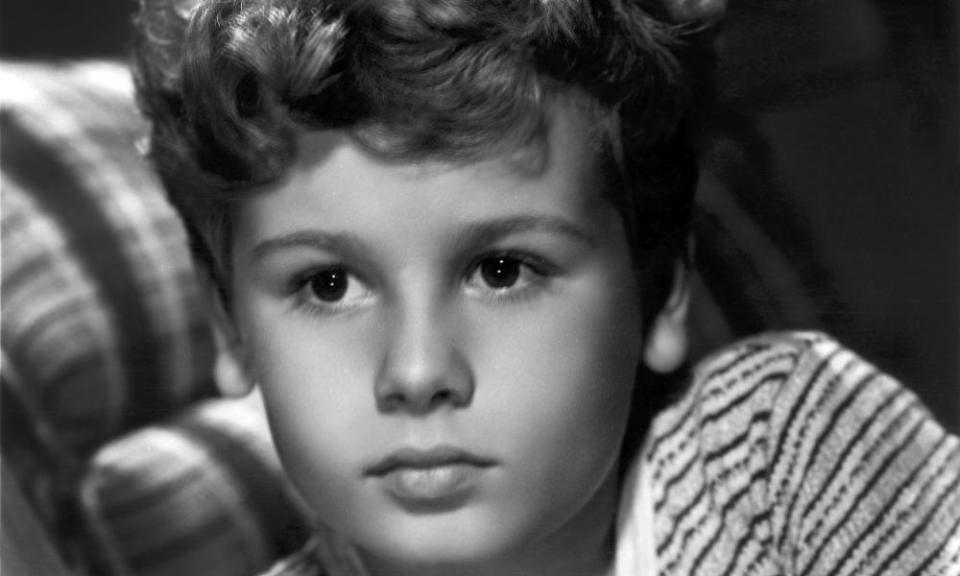Dean Stockwell: cult indie character actor who refused to fit in
Dean Stockwell was the child actor in numberless studio movies of the 1940s, who arguably never quite got over that brutal apprenticeship, especially as the system soon saw that audiences loved it when he cried. Stockwell was always having to burst heart-rendingly into tears – he remembered being told by Elia Kazan to think of a puppy dying just before a take. He outgrew his cherubic sweet looks into the closed and somehow damaged handsomeness of a young actor who didn’t entirely fit either the leading man model of the old-fashioned studio system, nor the new wave and counterculture scene in which his contemporary Dennis Hopper made a splash.

Despite briefly quitting showbusiness in the 60s to explore his hippy side, Stockwell took a regular pay cheque in TV for the rest of his life and for all his periodic depression about the state of his movie career, found that he was continuously in demand as a rugged character actor in his middle years, achieving cinephile respect for working with Wim Wenders, David Lynch, William Friedkin, Jonathan Demme, Robert Altman and Francis Ford Coppola. He was the kind of supporting actor who lent texture and authenticity to a movie, especially for a certain kind of indie American gothic.
Perhaps the starting point for Stockwell’s cult iconic status was his child-star role in the deeply weird and intriguing The Boy With Green Hair (1948), directed by Joseph Losey (in the era before the McCarthyite witch-hunt drove Losey out of Hollywood): he is the kid who is bullied because his hair turns green, apparently as a result of the trauma of being a war orphan, and the ostensible point of this strange story is its anti-war message. And yet this fantastical fable (the sort of film that might perhaps have interested Powell and Pressburger) is susceptible to many variant readings. The unmentionable hell of being “different” in conformist America? Green as a metaphor for being … red? Or black? Or maybe it is a parable for the freak-visibility of fame, especially child-actor fame, the green-hair trauma that Stockwell took with him into a brooding adulthood. Later, Stockwell played Billy the Kid in Dennis Hopper’s controversial and experimental The Last Movie in 1971, a film whose countercultural trippiness maybe underscored Stockwell’s sense of his own alienation, despite his own fierce advocacy of this film, and of Dennis Hopper’s talent generally.
It was in the 1980s that Stockwell’s movie career resurfaced as a character player, probably most notably in Wim Wenders’s Paris, Texas – that most European perspective on Americanness – in which Stockwell played Walt, the longsuffering brother of the runaway, haunted Travis, played by Harry Dean Stanton. Stockwell’s Walt is the straight-arrow guy who is concerned and irritated by his brother’s mute strangeness: Stockwell was destined to be upstaged of course by Stanton and the role could be (uncharitably) seen as another indicator of Stockwell’s not fitting in to either the straight or transgressive worlds – and yet he brought a real presence to the part: his concern and own tacit emotional pain were the bedrock on which Travis’s story was placed.
It was also true of his performance as Dr Yeuh in David Lynch’s flawed version of Dune in the same year, the film that was effectively his cinema comeback: the personal doctor to the Atreides household that he is to betray under duress. In 1985, he was the shifty criminal attorney Grimes in William Friedkin’s To Live and Die in LA, the lawyer who is working for the counterfeiter whom the police are trying to bring down and ends up reluctantly assisting law enforcement, while retaining his essential amoral indifference to either side. But it was one year after that that Stockwell achieved what might be his masterpiece: his role as Ben in David Lynch’s Blue Velvet, who performs a compellingly bizarre lip-sync version of Roy Orbison’s In Dreams.
The 1980s ended with Stockwell’s brush with Oscar glory and perhaps the nearest he ever came to a conventional Hollywood-glamour showcase. His Academy Award nomination for best supporting actor for his role as mafia boss Tony “The Tiger” Russo in Jonathan Demme’s 1988 black comedy Married to the Mob came alongside that other haunted former child actor River Phoenix, nominated for Sidney Lumet’s Running on Empty. Stockwell is the wiseguy who whacks the gangster-husband of Michelle Pfeiffer; she finds herself under investigation by the police, and also has the Tiger taking an interest, perhaps sexual, perhaps simply to make sure she doesn’t rat anyone out. This was a strong, confident performance by Stockwell who, despite his “supporting actor” status, was in the unusual position of upstaging all the other men on the screen. In some ways, it was a pity he couldn’t cultivate the comedy career comparable to that of the actor who played his murder victim here: Alec Baldwin.
The 1990s saw Stockwell taking solid supporting roles in Robert Altman’s The Player and Francis Ford Coppola’s The Rainmaker, although they didn’t tap into that reserve of pain and emotional woundedness that Wenders or Lynch saw. But Stockwell was to be the face of a certain strain of alternative American cinema: the alienated outsider.

 Yahoo Movies
Yahoo Movies 